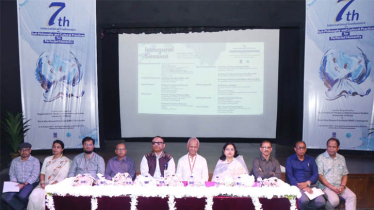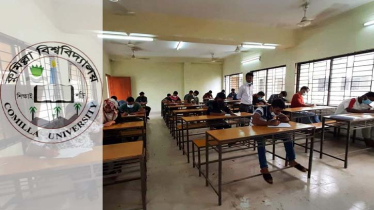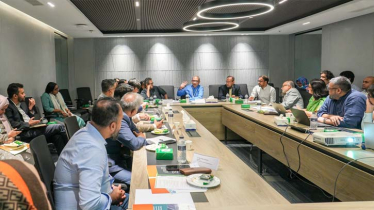
Photo: Jennifer Hossain
Both public and private universities in Bangladesh are chaired by the Vice Chancellor, supported by the Pro Vice Chancellor, Treasurer, Registrar, and Directors. These leaders work together to achieve the university’s vision. Universities rely on both academic and non-academic employees for smooth functioning. Academics focus on teaching and research, while administrators manage operations of the university.
A few faculty members also additionally serve as Directors of various offices or research centers. Transitioning from teaching to administration is difficult, requiring different skills. Teaching centers on knowledge transfer, while administration involves leadership, strategy, and management. Bridging this gap is essential for effective university administration. Additionally, senior management should recognize that managing faculty members differs from managing administrative staff and adapt their approach accordingly.
Public and private universities operate under distinct cultures and systems. Public universities are often bureaucratic, with centralized governance focused on regulatory compliance. In contrast, private universities emphasize flexibility, efficiency, and student satisfaction, driven by the need to remain competitive. Faculty members and administrators must recognize these differences and adapt their approaches accordingly, understanding that students and administrative processes need to be handled differently in public and private universities.
As someone with experience in both academic and administrative roles in Bangladesh and abroad, I have witnessed the importance of communication, soft skills, and leadership. Effective administrators foresee challenges and opportunities. Proactive leadership, strategic planning, and setting a positive example are vital for guiding a university toward its goals.
A university's culture should incorporate openness, where management is transparent, fostering trust. Diversity must be celebrated, creating a rich learning environment. A welcoming atmosphere ensures that students, faculty, and staff feel valued, cultivating innovation, critical thinking, and a strong sense of community. Moreover, a gossip-free culture strengthens teamwork and collaboration across the university, further enhancing its inclusive and supportive environment.
University policies and practices should focus on supporting student development and helping them achieve their goals. Empathy, emotional intelligence, and conflict resolution are critical for creating a positive campus environment. These skills help foster strong relationships and ensure the well-being of both students and staff, ultimately contributing to a thriving university community.
Administrators must excel at conveying ideas and listening to concerns, ensuring that everyone is aligned and motivated to work toward the university's objectives. Administrators should also act as mentors, guiding students and staff to reach their full potential, which fosters a dynamic environment. This mentorship plays a key role in creating a thriving academic community.
University leaders must identify and match administrative potential with suitable roles to enhance overall performance. If an employee is underperforming in their current role, a transfer to a different office where their abilities are better suited can improve their contribution. This approach not only optimizes the efficiency of the university's operations but also supports professional development and ensures that the right talent is applied to the right tasks.
Successful partner universities worldwide offer valuable lessons. Adopting best practices and maintaining industry connections ensures that an institution remains relevant and competitive. Directors of offices like Admissions, Registrar Office, International Affairs, Career Services, Alumni Relations Office and Student Affairs, who interact directly with students, must stay updated on the latest trends in education and industry to keep the university innovative and forward-thinking.
University administrators should lead by example in promoting sustainability and social responsibility. This involves integrating sustainable practices into university policies and fostering a culture of environmental responsibility. Additionally, promoting diversity, inclusion, and active community engagement is essential for creating a socially responsible campus environment.
Continuous professional development is essential for administrative staff to stay effective and adapt to new challenges. Universities should offer training in leadership, strategic planning, and the latest administrative practices. Skills such as data management, crisis management, and effective communication are crucial for handling complex challenges. Mentorship programs, where experienced administrators guide newer staff, can foster a culture of continuous learning and professional growth.
Universities must be prepared to handle crises effectively, whether financial, natural disasters, or global pandemics. Developing a comprehensive crisis management plan with clear communication protocols and designated crisis teams is essential. During a crisis, transparent communication is key to maintaining operations and ensuring the safety of the university community. Post-crisis, universities should focus on recovery, learning from experience, and updating crisis management plans to be better equipped for future challenges.
My experiences working in India, Malaysia, and Bangladesh at renowned think tanks, consultancies, universities, and corporations, as well as participating in international conferences, have underscored the value of global perspectives. International exposure broadens horizons and enhances adaptability, making administrators more effective. Encouraging such opportunities within the university benefits both students and the institution.
Ultimately, university administrators must blend strategic planning, crisis management, and communication skills. They need to anticipate challenges and guide diverse teams effectively. Whether leading locally or aspiring globally, administrators must be proactive, open to learning, and committed to excellence. By refining these skills and strategies, they can foster a thriving, student-centered environment and drive success across the academic community.
Jennifer Hossain is a Consultant, International Affairs at University of Liberal Arts Bangladesh, the former Director of the Center for Career Development at Green University of Bangladesh and former Faculty member, currently living in Portugal.
Messenger/Anjan








